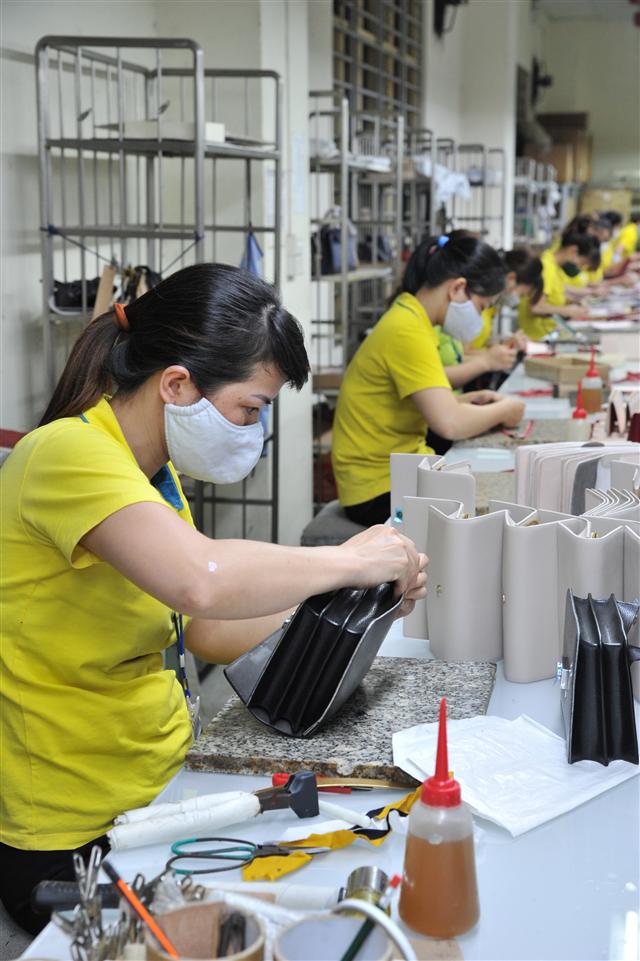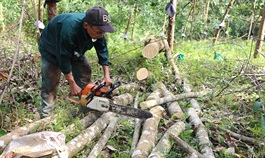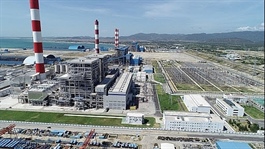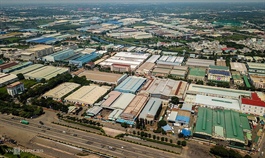Vietnam’s support industries ready for supply chain shifts
Vietnam’s support industries ready for supply chain shifts
Free trade agreements to which Vietnam is a signatory are opening up major opportunities for support industry enterprises, while the flow of foreign investment into the country will help them expand production and create breakthroughs in 2021.
|
Strengthening connectivity
Vietnam has joined a series of free trade agreements in recent years, including the Comprehensive and Progressive Agreement for Trans-Pacific Partnership (CPTPP), the EU-Vietnam Free Trade Agreement (EVFTA), and the Regional Comprehensive Economic Partnership (RCEP). As a result, demand has increased for cooperation and investment between domestic businesses and foreign companies.
Nguyen Hoang, chairman of the Hanoi Supporting Industries Business Association (HANSIBA), said many Vietnamese support industry enterprises participate in the production chains of large multinational corporations, such as Canon, Samsung, Toyota and Honda. The HANSIBA has strengthened cooperation and organized supply-demand connection programs between domestic support industry enterprises and FDI companies to further boost linkages.
Phan Dang Tuat, permanent deputy chairman of the Vietnam Association for Supporting Industries (VASI), said Vietnamese support industry enterprises have been greatly affected by the Covid-19 pandemic. In addition, the number of domestic enterprises participating in the production network of multinational corporations is low, while the capacity of local producers to meet the strict requirements of FDI companies remains limited.
Most support industry enterprises are small-sized, with low competitive ability and limitations in terms of human resources, capital, management and capacity. However, the Covid-19 pandemic has offered new opportunities for support industry enterprises to enter the global supply chain.
Promoting support industry development
Support industry development could create a driving force for Vietnamese industry, but it requires reduced logistics costs for loading, unloading, storing and transporting goods, while cutting administrative procedures. The business environment should continue to advance toward transparency, clarity, consistency, stability and predictability, requiring close coordination of the government, ministries and departments in identifying strategic priorities, building policy framework and enhancing the role of associations.
Support industry enterprises have suggested that the government study and submit to the National Assembly for promulgation of the Law on Support Industries, and issue a specific instruction to require foreign companies operating in Vietnam to place orders with Vietnamese businesses to be eligible for tax incentives. In addition, the government should support enterprises in applying the fast-moving developments of the fourth industrial revolution.
In August 2020, the prime minister issued Resolution 115/NQ-CP on the development of support industries, including effective implementation of specific mechanisms and policies to develop the manufacturing and processing industry and preferential interest rates for support industry enterprises.
The resolution sets out a target for Vietnamese enterprises to produce highly competitive support industrial products meeting 45 percent of the essential needs for domestic production and consumption, and accounting for about 11 percent of industrial production value by 2025. About 1,000 enterprises are expected to be capable of supplying directly to assembly enterprises and multinational corporations, of which domestic enterprises will account for about 30 percent by 2025.
To boost support industry development, the Ministry of Industry and Trade will amend and supplement regulations on support industries, while completing development strategies for key industries. In addition, the Ministry of Industry and Trade’s Vietnam Industry Agency will coordinate with relevant units to strengthen trade promotion activities, boost investment attraction, enhance the linkages between domestic support industry enterprises and FDI companies, and make good use of free trade agreements.
| Vietnam has set a target for support industry products to meet 70 percent of domestic demand, accounting for about 14 percent of industrial production value by 2030. Under this scenario, about 2,000 enterprises will be capable of supplying directly to assemblers and multinational corporations in the country. |




























